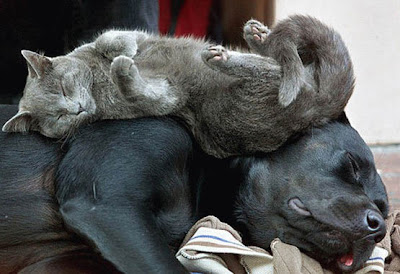
The winter months can pose a number of expected and unexpected health threats to pets, ranging from frigid temperatures to seemingly harmless salt scattered on sidewalks. Waltham, the world's leading authority on pet care and nutrition, advised pet owners to be aware of basic steps they can take to ensure their pets' well-being.

- Seconds, please. – Give your pet more food during cold weather than you do during hot months. Dogs, for example, may need up to 25 percent more energy in the winter than they do in the summer, especially those that exercise outdoors.
- Scat cat – Before starting your car on cold days, honk the horn to scare away any cat that may be hiding in the warm engine compartment.
- Fatal attraction – When refilling your car's radiator, be sure to clean up any spilled antifreeze. Ethylene glycol has a sweet taste to both dogs and cats, and is highly toxic.
- Dry cleaning – Don't neglect pet grooming in the winter. While a regular bath is unwise unless you have a good dryer, combing and even "dry" bathing will keep your pet's coat clean and healthy, and reduce odor. To give your pet a dry bath, brush corn starch or baby powder into your cat's or dog's coat, and then thoroughly brush it out.
- The big chill – Don't leave your pet outside for long periods of time. Low body temperature (hypothermia) can quickly result, and can lead to death. If the wind chill index is below 20 degrees, do not take small house pets, older dogs and cats, or short-haired dogs outside. If you must take your pet out in cold weather, dress it in a knit sweater, which will give it an added layer of protection.
- Cold feet – After bringing your pet indoors, check its feet to make sure ice has not formed between its toes. If it has, carefully clean the pet's feet and pads with warm water and a cloth. In addition, if you use salt to melt ice on your driveway or sidewalk, clean your pet's feet after every trip outside.
- Water, water, everywhere – If your pet is kept outdoors, be sure it always has a fresh supply of water, and check frequently to be sure the water hasn't frozen.
- Open door policy – Increased numbers of visitors during the holiday season may provide an opportunity for your pet to slip out the door unnoticed. Keep an eye on your cat or dog when guests arrive and depart, and be sure your pet has proper identification in case it does get out.


No comments:
Post a Comment